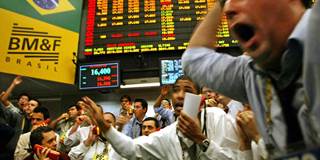Brazil’s future hinges on the implementation of smart, gradual, and coherent economic reforms that facilitate productivity growth and put the country on the path toward fiscal sustainability. Whoever wins the upcoming election has a responsibility to address that imperative.
SÃO PAULO – Brazil is approaching its most consequential election since the end of military rule more than three decades ago. But while the country’s politics are plagued by dysfunction, the election’s outcome will hinge on the next government’s economic reform agenda.
One of Brazil’s most serious economic challenges is anemic productivity growth, which has been undermining the country’s growth potential. With output per employee increasing by just 0.7% per year, on average, since the mid-1990s, more than half of per capita income growth over the last two decades has resulted from an increase in the share of the economically active population. But that engine of income growth will soon stall, owing to rapid population aging.
Weak productivity growth partly reflects a lack of trade openness, which limits Brazilian firms’ access to foreign inputs and technologies, as well as barriers to effective domestic competition. Moreover, weak logistics infrastructure, differentiated state tax regimes, and subsidies to specific firms enable less efficient companies to survive and retain resources, lowering average productivity.

SÃO PAULO – Brazil is approaching its most consequential election since the end of military rule more than three decades ago. But while the country’s politics are plagued by dysfunction, the election’s outcome will hinge on the next government’s economic reform agenda.
One of Brazil’s most serious economic challenges is anemic productivity growth, which has been undermining the country’s growth potential. With output per employee increasing by just 0.7% per year, on average, since the mid-1990s, more than half of per capita income growth over the last two decades has resulted from an increase in the share of the economically active population. But that engine of income growth will soon stall, owing to rapid population aging.
Weak productivity growth partly reflects a lack of trade openness, which limits Brazilian firms’ access to foreign inputs and technologies, as well as barriers to effective domestic competition. Moreover, weak logistics infrastructure, differentiated state tax regimes, and subsidies to specific firms enable less efficient companies to survive and retain resources, lowering average productivity.